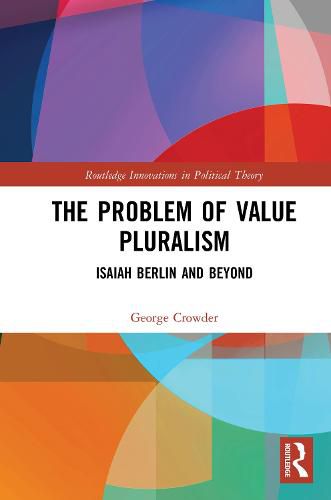Readings Newsletter
Become a Readings Member to make your shopping experience even easier.
Sign in or sign up for free!
You’re not far away from qualifying for FREE standard shipping within Australia
You’ve qualified for FREE standard shipping within Australia
The cart is loading…






Value pluralism is the idea, most prominently endorsed by Isaiah Berlin, that fundamental human values are universal, plural, conflicting, and incommensurable with one another. Incommensurability is the key component of pluralism, undermining familiar monist philosophies such as utilitarianism. But if values are incommensurable, how do we decide between them when they conflict?
George Crowder assesses a range of responses to this problem proposed by Berlin and developed by his successors. Three broad approaches are especially important: universalism, contextualism, and conceptualism. Crowder argues that the conceptual approach is the most fruitful, yielding norms of value diversity, personal autonomy, and inclusive democracy. Historical context must also be taken into account. Together these approaches indicate a liberal politics of redistribution, multiculturalism, and constitutionalism, and a public policy in which basic values are carefully balanced.
The Problem of Value Pluralism: Isaiah Berlin and Beyond is a uniquely comprehensive survey of the political theory of value pluralism and also an original contribution by a leading voice in the pluralist literature. Scholars and researchers interested in the work of Berlin, liberalism, value pluralism, and related ideas will find this a stimulating and valuable source.
$9.00 standard shipping within Australia
FREE standard shipping within Australia for orders over $100.00
Express & International shipping calculated at checkout
Value pluralism is the idea, most prominently endorsed by Isaiah Berlin, that fundamental human values are universal, plural, conflicting, and incommensurable with one another. Incommensurability is the key component of pluralism, undermining familiar monist philosophies such as utilitarianism. But if values are incommensurable, how do we decide between them when they conflict?
George Crowder assesses a range of responses to this problem proposed by Berlin and developed by his successors. Three broad approaches are especially important: universalism, contextualism, and conceptualism. Crowder argues that the conceptual approach is the most fruitful, yielding norms of value diversity, personal autonomy, and inclusive democracy. Historical context must also be taken into account. Together these approaches indicate a liberal politics of redistribution, multiculturalism, and constitutionalism, and a public policy in which basic values are carefully balanced.
The Problem of Value Pluralism: Isaiah Berlin and Beyond is a uniquely comprehensive survey of the political theory of value pluralism and also an original contribution by a leading voice in the pluralist literature. Scholars and researchers interested in the work of Berlin, liberalism, value pluralism, and related ideas will find this a stimulating and valuable source.